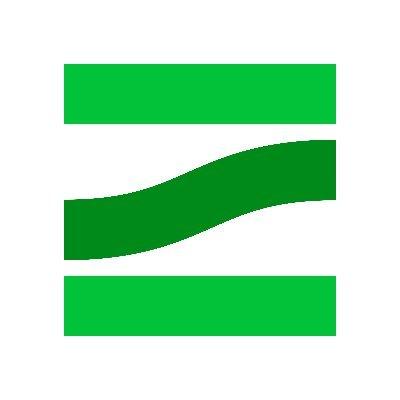Invest in single-family homes
Buy pre-IPO stock in private companies
Investments
$56,000
The minimum investment on Doorvest is a 25% down payment on a home, averaging $56,250 based on the average home price of $225,000.
Investments
$10,000
The minimum investment on EquityZen is $10,000, though this may vary by offering.
Moderate Risk
3/5
Investing with Doorvest involves risks such as market volatility, economic changes, and property-specific issues. While the platform aims to manage these effectively, outcomes can be uncertain, and investors should carefully consider their risk tolerance and conduct due diligence before investing.
High Risk
4/5
Investing in private companies via EquityZen involves risks such as limited liquidity, market volatility, company performance uncertainties, regulatory changes, less available information, and potential lack of diversification, which could impact investment returns.
Minimum Liquidity
1/5
Doorvest allows investors to sell their homes back to the platform, requiring them to connect with a client partner for more information on the process.
Minimum Liquidity
1/5
EquityZen offers liquidity for vested shares only. It does not provide liquidity for unvested shares, unvested RSUs, or options directly.
Receive new reviews from Fintorial
High Return
18 %
Doorvest reports an average annual investment return of 18%, accounting for rental income, property appreciation, and mortgage leveraging.
Not Predictable Return
N/P
Unlike public market investments, private investments carry higher risks and unpredictability. Consequently, it's challenging to define a standard return rate for EquityZen investments.
Long-term Investment
5-30 years
Doorvest focuses on long-term investments in single-family rentals, generally suggesting a commitment of several years to decades, based on real estate appreciation and rental income.
Long-term Investment
2-5 years
Typically, companies on EquityZen have received late-stage funding, suggesting an expected investment horizon of 2-5 years, but outcomes can vary widely.
Who can invest
United States
To invest with Doorvest, you need to be in the U.S. or able to sign documents at a U.S. Embassy.
Moderate Volatility
3/5
Real estate assets on Doorvest can experience volatility due to economic shifts, interest rate changes, and local market trends, potentially affecting investment values and posing risks for short-term investors.
Moderate Volatility
3/5
Assets on EquityZen, which are shares in private companies, can be highly volatile due to limited public information, sensitivity to market conditions, low liquidity, and company-specific events, leading to significant price fluctuations.
Regulation and audits
TREC Regulated
Doorvest complies with the Texas Real Estate Commission (TREC) consumer protection notice, indicating adherence to state-level real estate transaction standards. It does not provide details on broader financial regulations or audits, focusing more on real estate industry compliance than securities regulation.
Regulation and audits
SEC Regulated
EquityZen Securities is registered with the SEC and is a member of FINRA/SIPC, ensuring it adheres to regulatory standards and practices for investor protection and undergoes regular audits.
Insurance
Yes
Doorvest protects rental investments with homeowner's insurance, covering physical structure damage and potentially extending to personal belongings and medical expenses. This coverage is a mortgage lender requirement, safeguarding against various damages, though investors should be aware of any coverage limitations.
Insurance
No
EquityZen is a FINRA/SIPC member firm, offering account protection up to $500,000 (including $250,000 for cash claims) through SIPC in case of brokerage failure, not covering market value losses.
Payouts
Rental Income
Doorvest offers rental income as returns to investors, bolstered by a Rent Guarantee that includes vacancy and non-payment protection for the first three months, with an option to extend up to 12 months. Additionally, a Renovation Guarantee covers repair costs for the first year of ownership.
Payouts
No Recurring Payouts
Investors in private companies on EquityZen typically do not receive dividends, as these companies often reinvest profits to fuel growth.
Withdrawals
To get their money back, Doorvest investors need to sell their property, with the timeline depending on market conditions and the sale process. The process is initiated through Doorvest, and funds are received after the property is sold and the transaction is completed.
Withdrawals
Investors can get their money back from investments on EquityZen mainly through an IPO, acquisition of the company, or secondary market sales on the platform. However, returns depend on market demand and timing of these liquidity events, with no guaranteed timeline.
Extra Fees
Yes
Doorvest employs a fee model, deriving revenue from a portion of the monthly rental income and margins on home sales, always at fair market value.
Extra Fees
Yes
EquityZen charges a 5% fee to sellers upon transaction closure. For investors, a one-time sales fee applies: 5% for investments up to $500,000, 4% for $500,000 to $1 million, and 3% for over $1 million.
Taxes
Tax Form
Doorvest facilitates tax compliance by providing investors with all necessary documentation for tax filing, related to real estate investment income and expenses.
Taxes
Tax Form
EquityZen issues a Schedule K-1 for taxable events and provides vetted tax documentation to investors. Upon investment, individuals complete necessary tax forms (W-9 or W8-BEN) and receive annual tax updates.

